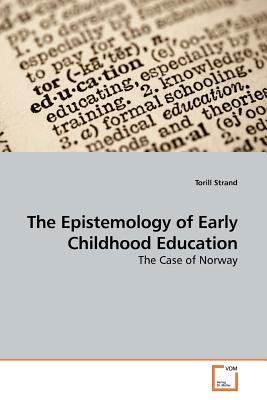
- We will send in 10–14 business days.
- Author: Torill Strand
- Publisher: VDM Verlag
- ISBN-10: 3639155130
- ISBN-13: 9783639155136
- Format: 15.2 x 22.9 x 1.2 cm, minkšti viršeliai
- Language: English
- SAVE -10% with code: EXTRA
Reviews
Description
"The Epistemology of Early Childhood Education" refers to the educational beliefs constructed, reconstructed and justified within the social field of early childhood education. Torill Strand here reports and discusses results from a theoretical and empirical study on the social production and justification of educational beliefs within the Norwegian programs of preschool teacher training. Research methods contain critical discourse analysis and the material reading lists and interviews with selected authors of the literature. Strand here holds that knowledge is embedded in social relations. In exploring these relations she leans on the sociocultural theory of Pierre Bourdieu and the philosophy of Charles Sanders Peirce. As Strand's ambition is to debunk the passive- spectator view of knowledge, the epistemic self reflection is here a leitmotif. In going beyond doxa and episteme, Strand rejects the possibility of establishing clear-cut demarcations between knowledge and society; between research based knowledge and everyday knowledge; between the object and the subject of knowledge.
EXTRA 10 % discount with code: EXTRA
The promotion ends in 23d.15:33:13
The discount code is valid when purchasing from 10 €. Discounts do not stack.
- Author: Torill Strand
- Publisher: VDM Verlag
- ISBN-10: 3639155130
- ISBN-13: 9783639155136
- Format: 15.2 x 22.9 x 1.2 cm, minkšti viršeliai
- Language: English English
"The Epistemology of Early Childhood Education" refers to the educational beliefs constructed, reconstructed and justified within the social field of early childhood education. Torill Strand here reports and discusses results from a theoretical and empirical study on the social production and justification of educational beliefs within the Norwegian programs of preschool teacher training. Research methods contain critical discourse analysis and the material reading lists and interviews with selected authors of the literature. Strand here holds that knowledge is embedded in social relations. In exploring these relations she leans on the sociocultural theory of Pierre Bourdieu and the philosophy of Charles Sanders Peirce. As Strand's ambition is to debunk the passive- spectator view of knowledge, the epistemic self reflection is here a leitmotif. In going beyond doxa and episteme, Strand rejects the possibility of establishing clear-cut demarcations between knowledge and society; between research based knowledge and everyday knowledge; between the object and the subject of knowledge.


Reviews